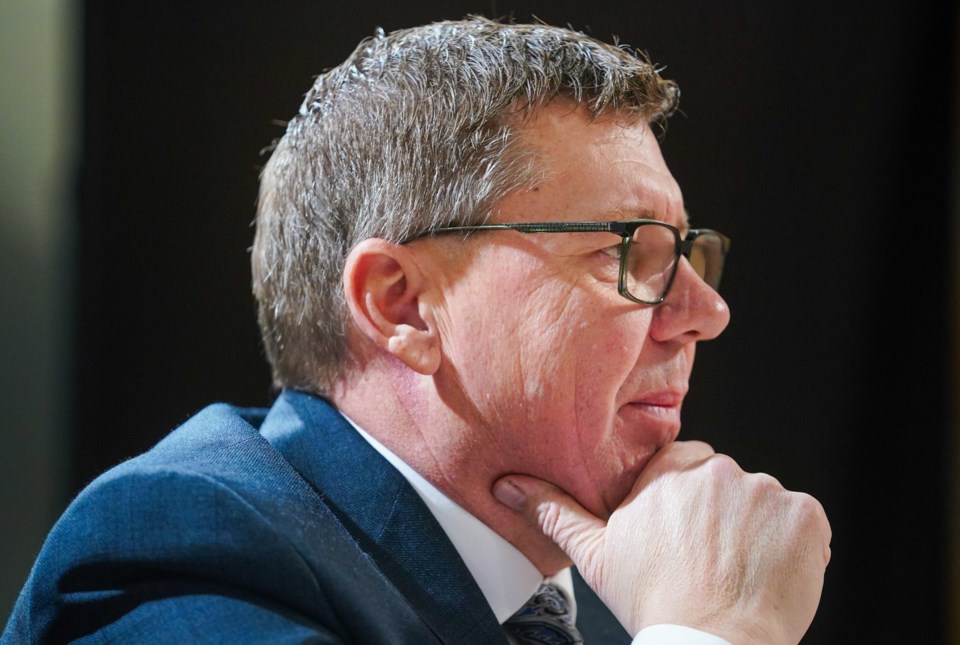REGINA — The Saskatchewan Party government is projecting a deficit that’s more than double what it predicted in its budget, largely due to higher crop insurance payouts following a difficult farming season.
The mid-year financial report released Thursday says the province is projected to be $743.5 million in the red, up from the $273.2-million deficit forecast in the budget.
It says weather conditions were good in the spring, but a hot July dried out fields and reduced crop yields.
"Agriculture is fundamentally important to the economy in Saskatchewan. That's why it's important for us to have a program like crop insurance in place when our producers face adverse conditions," Finance Minister Jim Reiter told reporters.
"It's also important to recognize that our producers help fund the Saskatchewan crop insurance program through the premiums that they pay into the program."
Reiter said Saskatchewan is an export-dependent province where crop yields and commodity prices often fluctuate.
"(These numbers) aren't out of the realm of ordinary," he said.
"You're going to see some quarters and some years with increases, decreases. To me, what's more important is trends and where we're going overall."
He said Saskatchewan over time needs to become less dependent on non-renewable resource revenues.
"We're going to want to continue to (set targets) to mitigate those wild fluctuations as much as possible," Reiter said.
The report said the province also plans to spend more to deal with pressures in prisons and hospitals, and costs associated with suppressing wildfires are also expected to rise.
Overall revenues are earmarked to be $20.1 billion, with larger gains in taxation. Non-renewable resource revenue is expected to be slightly lower, particularly from potash.
Total gross debt is forecast at $35.2 billion, an increase of $388.5 million from budget.
Reiter said the province's net debt-to-GDP ratio is to be 13.9 per cent, the second lowest among all provinces. He also said there has been employment and economic growth.
"Our province's fiscal picture is strong. Our economy is resilient and our future is great," he said.
Opposition NDP finance critic Trent Wotherspoon told reporters the Saskatchewan Party government should have provided the update before the Oct. 28 election.
"We should have gone into the election with a more accurate picture on these sorts of numbers," he said.
"People deserve transparency, and they deserve the real numbers so they know what they're dealing with. We haven't been getting that with the Sask. Party. We've had really awful forecasting and management (from them)."
Wotherspoon said the province should open its books to find savings and make sure money is spent wisely.
He took aim at the government's travel spending, projects that ended up with ballooning costs and endeavours to send patients out of province for health care.
"We need to make sure that we're getting the greatest value for the public dollars of Saskatchewan people, that we're not wasting them on overpriced hotel rooms or mammograms that are costing 10 times more or on projects that go sideways."
This report by The Canadian Press was first published Nov. 28, 2024.
Jeremy Simes, The Canadian Press




